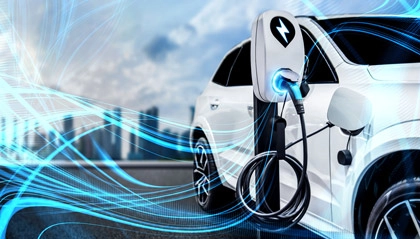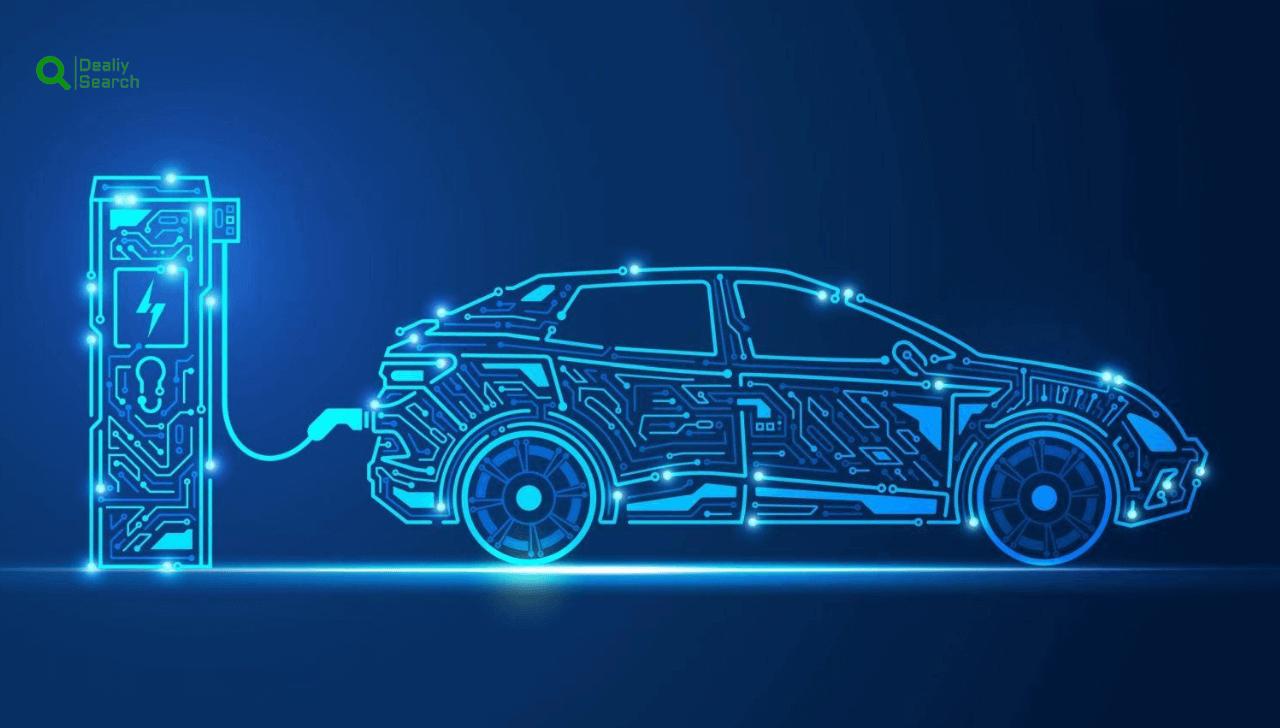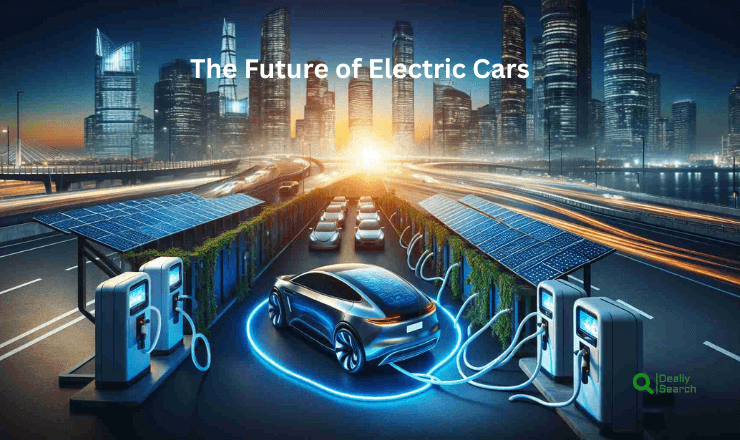Revolutionizing the Road: Exploring the Latest Electric Vehicle Innovations

The automotive industry is undergoing a profound transformation with the rapid advancements in electric vehicle (EV) innovations. As the world embraces sustainable transportation solutions, EVs have emerged as the frontrunners, offering numerous benefits over traditional internal combustion engine vehicles. This article will delve into the latest trends and developments in electric vehicle technology, exploring the cutting-edge innovations that are revolutionizing the road.
Benefits of Electric Vehicles

Electric vehicles have gained immense popularity due to their numerous advantages. Firstly, they are environmentally friendly, producing zero tailpipe emissions and significantly reducing air pollution. This is a crucial step towards combating climate change and improving air quality in urban areas. Additionally, EVs offer lower operating costs since electricity is generally cheaper than gasoline. With the increasing availability of charging infrastructure, the cost of charging an EV is often considerably lower than refueling a gasoline vehicle.
Moreover, electric vehicles provide a smoother and quieter driving experience. The instant torque provided by electric motors results in quick acceleration and a responsive driving feel. EVs are also known for their efficiency, converting a higher percentage of stored energy into actual vehicle movement than internal combustion engines. Furthermore, the reduced maintenance requirements of EVs, thanks to fewer moving parts, contribute to cost savings for vehicle owners.
Latest Trends and Developments in Electric Vehicle Technology
As technology evolves, electric vehicle innovations constantly push the boundaries of what is possible. One of the most significant advancements is the improvement in battery technology. Lithium-ion batteries, commonly used in EVs, have seen remarkable progress in recent years. Manufacturers are developing batteries with higher energy densities, allowing for longer driving ranges and faster charging times.
Another trend in electric vehicle technology is integrating artificial intelligence (AI) and autonomous driving capabilities. AI-powered systems can enhance energy management, optimize driving routes, and improve vehicle performance. The combination of electric propulsion and autonomous driving has the potential to revolutionize the transportation landscape, making it safer, more efficient, and more convenient.
Advancements in Electric Vehicle Batteries

The heart of any electric vehicle lies in its battery technology. In recent years, significant advancements have been made to improve electric vehicle batteries’ performance, range, and charging capabilities. One key development is the introduction of solid-state batteries. Unlike traditional lithium-ion batteries, which use liquid electrolytes, solid-state batteries employ solid electrolytes. This innovation offers several advantages, including improved safety, higher energy density, and faster charging times.
Another breakthrough in electric vehicle battery technology is the use of silicon anodes. Silicon has the potential to store significantly more lithium ions than traditional graphite anodes, leading to increased energy density and longer driving ranges. However, the challenge lies in maintaining the stability of silicon during the charging and discharging cycles. Researchers are actively working towards addressing this issue to harness the full potential of silicon anodes.
Additionally, advancements in battery management systems (BMS) have played a crucial role in enhancing electric vehicle batteries’ overall performance and longevity. BMS technology enables efficient monitoring and control of the battery pack, ensuring optimal charging and discharging processes. This not only maximizes the driving range but also improves the battery’s longevity and reliability.
Cutting-Edge Electric Vehicle Charging Solutions
The availability of a robust charging infrastructure is vital for the widespread adoption of electric vehicles. To meet this demand, innovative charging solutions are being developed to make charging faster, more convenient, and accessible to all. One of the latest advancements is high-power charging stations capable of delivering significantly higher charging speeds. These stations utilize advanced cooling systems and higher voltage capabilities to reduce charging times, making long-distance travel in electric vehicles more feasible.
Wireless charging technology is another area of focus in developing electric vehicle charging solutions. With wireless charging, EV owners can park their vehicles over a charging pad, eliminating the need for physical cables. This technology utilizes electromagnetic fields to transfer energy from the charging pad to the vehicle’s battery. Wireless charging offers convenience and ease of use, making it a viable option for residential and public charging infrastructure.
Moreover, intelligent charging solutions are emerging to optimize energy consumption and grid management. These systems leverage artificial intelligence and connected technologies to intelligently schedule charging sessions based on energy demand and grid capacity. By balancing the charging load, intelligent charging solutions can minimize the strain on the electrical grid and reduce peak electricity demand.
Revolutionary Electric Vehicle Designs and Models
Electric vehicle innovations are not limited to technology alone but also extend to revolutionary designs and models. Automakers are pushing the boundaries of conventional automotive aesthetics, resulting in sleek, futuristic designs that captivate the imagination. Electric vehicles often feature aerodynamic shapes, bold lines, and unique lighting signatures, setting them apart from their gasoline-powered counterparts.
Furthermore, electric vehicles offer the flexibility to reimagine the interior space. Designers can create spacious and versatile interiors that prioritize comfort and convenience without the need for bulky internal combustion engines. Electric vehicles often incorporate advanced infotainment systems, intuitive controls, and cutting-edge driver-assistance technologies, creating a seamless and immersive driving experience.
The Impact of Electric Vehicle Innovations on the Automotive Industry
The rapid growth of electric vehicle innovations has profoundly impacted the automotive industry. Traditional automakers are transitioning towards electric mobility, investing heavily in research and development to compete in this evolving market. Many have announced ambitious plans to electrify their vehicle lineups in the coming years.
The rise of electric vehicles has also given birth to a new ecosystem of startups and innovative companies that focus exclusively on electric mobility. These companies are disrupting the industry with fresh ideas, innovative business models, and novel approaches to manufacturing and distribution.
Electric vehicle innovations have also spurred job creation in various sectors, including battery manufacturing, charging infrastructure installation and maintenance, and software development for electric vehicle management systems. As the demand for electric vehicles continues to rise, these job opportunities will further contribute to the growth of the green economy.
Government Incentives and Policies Promoting Electric Vehicle Adoption
Governments worldwide have implemented various incentives and policies to accelerate the adoption of electric vehicles. These measures aim to make electric cars more affordable, increase charging infrastructure deployment, and reduce carbon emissions in the transportation sector. Government incentives include tax credits, rebates, and grants for electric vehicle purchases. Some countries also offer subsidies for installing home charging stations or public charging infrastructure.
Furthermore, governments are implementing stricter emission standards and regulations, encouraging automakers to produce more electric vehicles and reduce their fleet’s carbon footprint. Many cities also implement low-emission zones where only electric or low-emission vehicles are allowed, promoting cleaner air quality and reducing noise pollution.
Challenges and Limitations of Electric Vehicle Innovations

While electric vehicle innovations hold tremendous promise, challenges, and limitations still need to be addressed. One of the primary concerns is the limited driving range of electric vehicles compared to gasoline-powered cars. Although the range has significantly improved in recent years, it remains a barrier for long-distance travel, and the need for frequent charging can be inconvenient for some drivers.
Another challenge is the availability and accessibility of charging infrastructure. While the number of charging stations is increasing, overlaps must be more frequent, especially in rural areas. Ensuring a robust and widespread charging network alleviates range anxiety and encourages more consumers to switch to electric vehicles.
Moreover, the production and disposal of electric vehicle batteries present environmental challenges. The extraction of raw materials and manufacturing processes can have a significant carbon footprint if not correctly managed. Additionally, the recycling and disposal of used batteries require efficient and sustainable methods to minimize environmental impact.
Challenges and Roadblocks in EV Adoption
Despite the rapid advancements in electric vehicle (EV) technology, several challenges still hinder widespread adoption. One of the most pressing issues is the charging infrastructure gap, as many regions still lack sufficient charging stations, making long-distance travel and urban convenience difficult for EV owners. Expanding charging networks, especially in rural areas, is essential for seamless adoption. Additionally, consumer skepticism remains a significant barrier, with concerns about battery life, high upfront costs, and potential maintenance expenses preventing many from making the switch.
Public awareness campaigns, government incentives, and advancements in battery longevity can help build consumer confidence. Another major challenge is the strain on the power grid, as a massive surge in EV adoption could lead to increased electricity demand, requiring upgrades to existing infrastructure and the integration of renewable energy sources to ensure sustainable charging solutions. Addressing these roadblocks through policy support, technological innovation, and strategic investments will be crucial in making EVs a mainstream transportation choice.
Future Prospects and Predictions for the Electric Vehicle Industry
The future of electric vehicles looks promising, with numerous advancements on the horizon. As technology improves, electric vehicle batteries will become more efficient, offering longer ranges and faster charging times. The development of solid-state batteries and other innovative battery technologies will revolutionize the industry, addressing the current limitations and paving the way for mass adoption of electric vehicles.
Furthermore, advancements in autonomous driving technology will transform the transportation landscape. Electric and autonomous vehicles will synergize, offering safer and more efficient mobility solutions. Shared mobility services and ride-hailing platforms will embrace electric and autonomous vehicles, reducing congestion and optimizing transportation resources.
As governments and societies prioritize sustainability, the demand for electric vehicles will continue to rise. The shift towards electric mobility will reduce greenhouse gas emissions and create new economic opportunities and jobs. The electric vehicle industry will play a crucial role in shaping a cleaner, greener, and more sustainable future for transportation.
Frequently asked Question
What are the latest technological advancements in electric vehicles (EVs)?
The latest EV innovations include solid-state batteries, which offer faster charging and longer range, wireless charging, and bidirectional charging (allowing cars to power homes). Automakers are also integrating AI-driven driving assistants, autonomous driving technology, and lightweight, high-efficiency materials to improve performance.
How is battery technology evolving to improve EV range and charging times?
Solid-state batteries and silicon-anode lithium batteries are key breakthroughs that provide higher energy density, reducing charging times and increasing range. New fast-charging stations can now charge some EVs up to 80% in less than 20 minutes.
How are EV manufacturers addressing sustainability and environmental concerns?
EV makers are using recycled materials, eco-friendly battery production, and closed-loop battery recycling to minimize environmental impact. Companies are also exploring solar-powered charging and hydrogen fuel cells for greener alternatives.
What role does artificial intelligence (AI) play in modern EVs?
AI enhances driver assistance systems, enabling features like adaptive cruise control, lane-keeping assistance, and autonomous parking. AI is also used for predictive maintenance, range optimization, and energy-efficient route planning.
What is the future of EV infrastructure and charging networks?
The future of EV charging includes ultra-fast charging networks, wireless charging roads, and vehicle-to-grid (V2G) technology, allowing cars to store and supply energy back to the grid. Governments and companies are investing heavily in expanding public charging stations to make EVs more accessible.
More Related Post: The Latest Automotive Innovations
Conclusion
Electric vehicle innovations are revolutionizing the road, offering sustainable and efficient transportation solutions. With advancements in battery technology, charging infrastructure, and vehicle designs, electric vehicles are becoming more accessible and appealing to consumers. The impacts of electric vehicle innovations extend beyond individual vehicle owners, shaping the future of the automotive industry and contributing to a greener and more sustainable planet. As governments, automakers, and consumers embrace electric mobility, the electric vehicle industry will continue to thrive, paving the way for a cleaner and brighter future.






